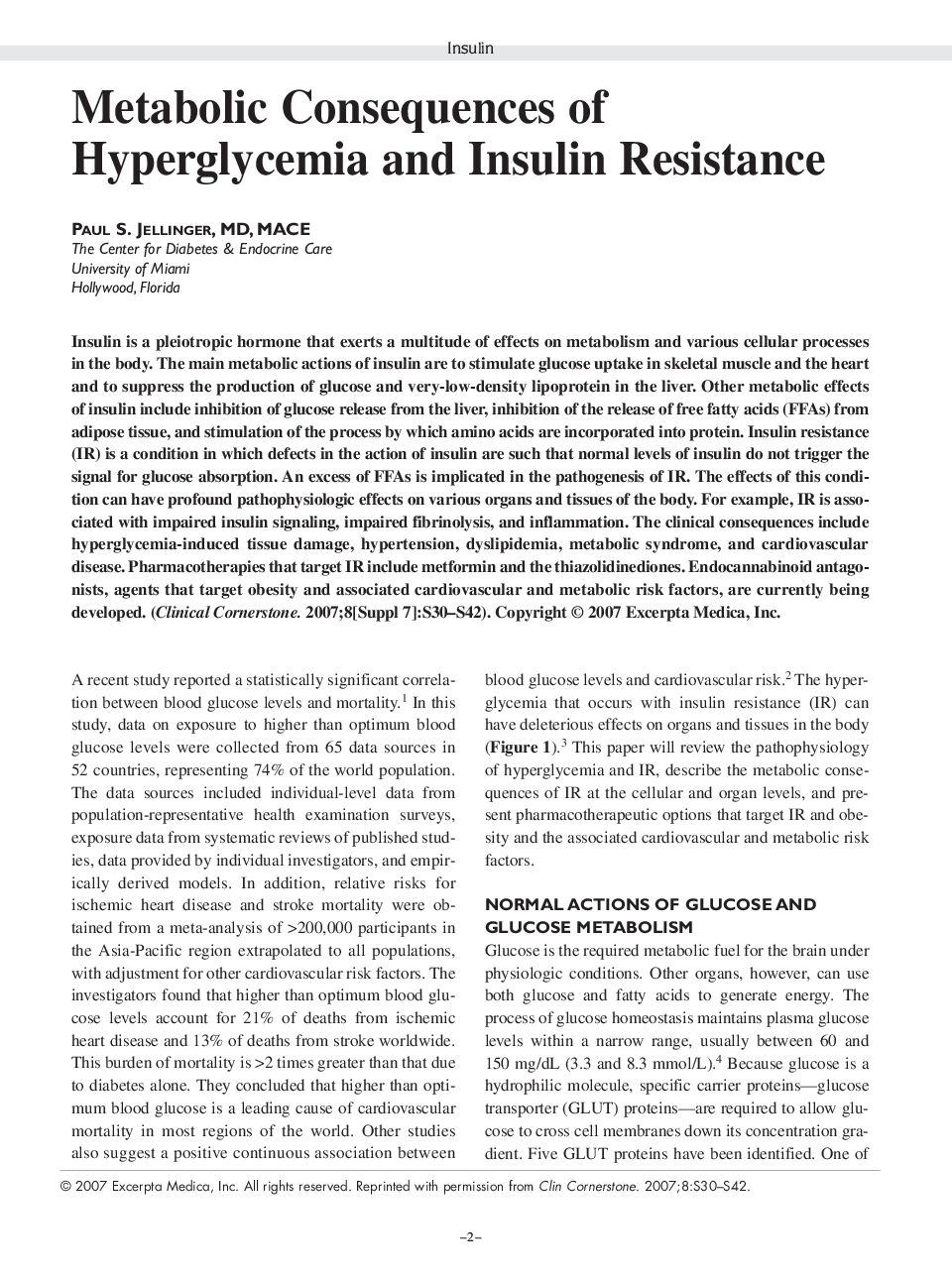| Article ID | Journal | Published Year | Pages | File Type |
|---|---|---|---|---|
| 2803754 | Insulin | 2009 | 13 Pages |
Insulin is a pleiotropic hormone that exerts a multitude of effects on metabolism and various cellular processes in the body. The main metabolic actions of insulin are to stimulate glucose uptake in skeletal muscle and the heart and to suppress the production of glucose and very-low-density lipoprotein in the liver. Other metabolic effects of insulin include inhibition of glucose release from the liver, inhibition of the release of free fatty acids (FFAs) from adipose tissue, and stimulation of the process by which amino acids are incorporated into protein. Insulin resistance (IR) is a condition in which defects in the action of insulin are such that normal levels of insulin do not trigger the signal for glucose absorption. An excess of FFAs is implicated in the pathogenesis of IR. The effects of this condition can have profound pathophysiologic effects on various organs and tissues of the body. For example, IR is associated with impaired insulin signaling, impaired fibrinolysis, and inflammation. The clinical consequences include hyperglycemia-induced tissue damage, hypertension, dyslipidemia, metabolic syndrome, and cardiovascular disease. Pharmacotherapies that target IR include metformin and the thiazolidinediones. Fndocannabinoid antagonists, agents that target obesity and associated cardiovascular and metabolic risk factors, are currently being developed.
